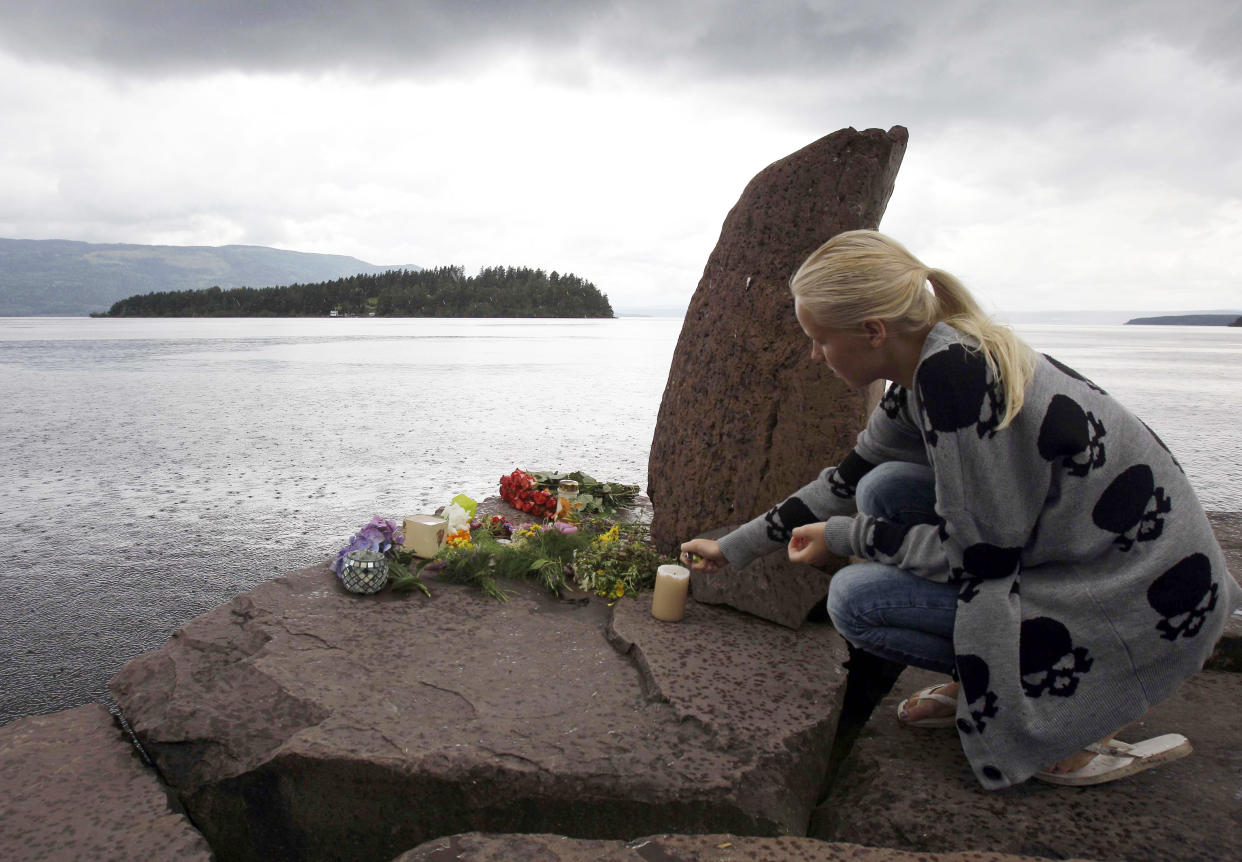Age-old racist theories have a new audience, and it's creating an 'evolving global danger'
LONDON — The racist attack in Buffalo, New York, is part of a broader movement that experts and officials fear could inspire further white nationalist terror across the world.
Though the suspect alone allegedly drove 200 miles from his hometown to carry out the massacre, his apparent online footprint suggests he formed part of an informal global network of radicalized young men inspired by racist conspiracy theories and far-right attacks from Norway to New Zealand.
London Mayor Sadiq Khan said this week that the Buffalo shooting “highlights the growing threat of far-right extremism in the U.S. and Europe.” Cities and nations need to unite against this “evolving global danger,” he said.
That evolution has helped give age-old racist theories a wide new audience.
And in stark contrast to terrorist threats of the 20th century, governments are now tasked with stopping violence that has origins not in physical terror cells but dispersed online subcultures across the world.
“We should have been braced for these attacks,” said Cas Mudde, a Dutch expert in extremism at the University of Georgia. “There have been similar attacks, some prevented, and there will be more, particularly in the U.S., where gun laws are so lax.”
While in some ways the Buffalo attack was rooted in American issues — using guns, targeting the Black community and appearing to cite theories prevalent in right-wing media, including Fox News — it had global roots.
Norway saw one of Europe’s worst mass shootings in 2011, when Anders Breivik murdered 77 people, mostly teenagers, at a youth camp for the country’s left-wing political party.

The attack has since become a rallying cry for other ethno-nationalists and was cited by Brenton Tarrant, who shot dead 51 people at two mosques in Christchurch, New Zealand, in 2019.Both men were mentioned in the “manifesto” apparently written by Payton Gendron, the suspect in the Buffalo shooting, as terrorists he supports.
“This is very much a global network of inspirational events,” said Stanislav Vysotsky, a sociologist and criminologist at the University of the Fraser Valley in British Columbia. “The Christchurch shooter took inspiration from shooters in the U.S., and then he inspires shooters in the U.S. and they then inspire actions elsewhere.”
The Buffalo shooting took place exactly three years after the signing of an agreement by world governments and five major tech companies to limit what content violent extremists can post online. The U.S. refused to sign the so-called Christchurch Call agreement, instigated by New Zealand after the Christchurch attack.
Despite such measures, activists and experts say the spread of racial hatred in disaffected communities will continue. As Bjørn Ihler, a Norwegian anti-terrorist activist who survived the 2011 attack on the island of Utøya, put it: “We are already too late.”
“The ideology is already out there. It’s been out there for ages. …The cat’s out of the bag on that one,” he told NBC News by video call from Sweden.

The “great replacement theory” — a paranoid conspiracy theory with antisemitic roots that falsely claims ethnically white people are being intentionally replaced by other ethnicities — has entered mainstream political discourse, Ihler pointed out. From its obscure origins in early 20th-century nationalism, and since being popularized in a 2011 essay from French writer Renaud Camus, it’s been mentioned frequently in news media, in parliaments, even by presidents before seemingly being espoused by Gendron.
The ultimate goal of those who carry out attacks based on such racist conspiracies is to “heighten the tensions and contradictions within society in such a way that there’s greater polarization,” Vysotsky said, “which will then — as white nationalists put it — lead to a race war that will ultimately lead to the victory of white people. They believe this on an ideological or spiritual level.”
Authorities said Gendron managed to livestream the shooting on the gaming platform Twitch until the stream was turned off. That video has been widely viewed since Saturday, Ihler added — despite the stream being live for less than two minutes.
Gendron also seemed to be active in online gun communities, including on 4chan and Reddit, while a diary kept on the gaming chat service Discord by an account using the same handle as Gendron is widely available. These are sites used by millions of young people across the world to share Minecraft tips and memes.
Just as the white nationalist skinhead movements of the 1970s through the 1990s came to dominate radical spaces and attract disaffected youths, the same thing is happening now with white nationalists in digital spaces.
“You see now in online spaces a kind of cultural domination — the hegemony of white nationalism and far-right ideas in transgressive spaces that are considered to be rebellious or edgy,” Vysotsky said. The apparent Discord diary “is really going to be something that’s a major focus for people in these movements and the fan base of white nationalist shooters.”

Counterterrorism experts and law enforcement leaders in Europe have warned since the start of the pandemic that the increased time spent online during Covid-19 lockdowns could lead to an increase in violence.
The document apparently written by Gendron specifically mentioned becoming radicalized after browsing 4chan through “extreme boredom.”
“It’s been a fear of people in the community working against terrorism that that was something that might happen,” Ihler said. “This is the first example of someone saying it outright.”
Covid has also helped to fan the flames of anti-government sentiment among far-right activists, Ihler added.
“All of that in combination with lonely dudes spending far too much time on the chans — it’s a problem, and it’s something we as a society need to learn how to address,” Ihler said. “How do we reintegrate people who have been living the last couple of years online into human society? That’s a massive post-Covid challenge.”
